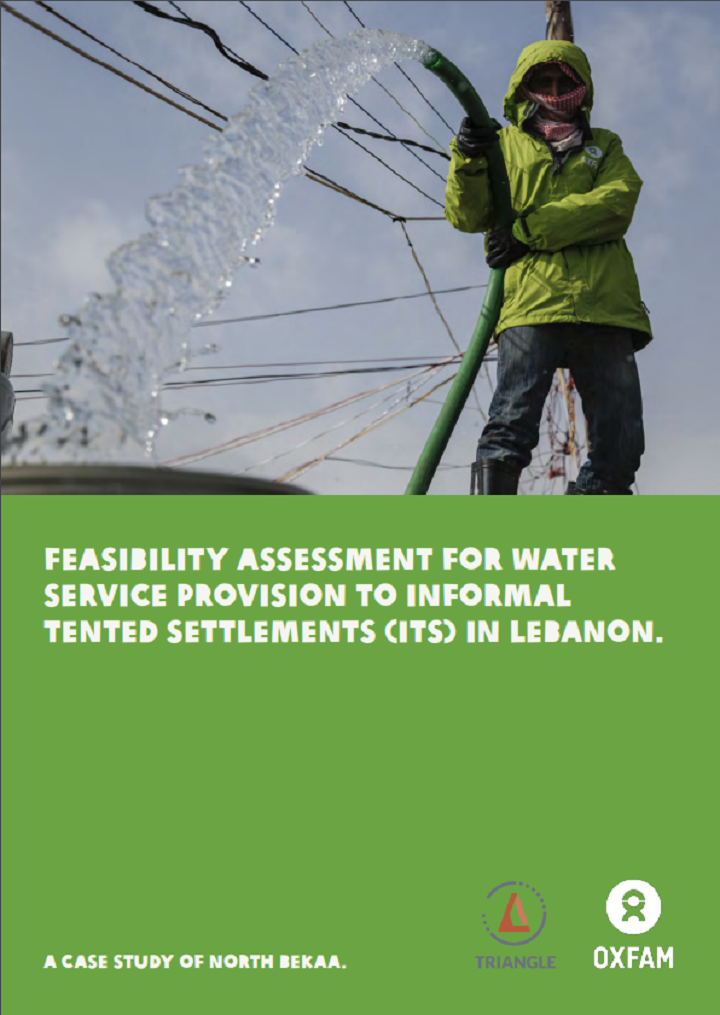Feasibility Assessment for Water Service Provision to Informal Tented Settlements (ITS) in Lebanon A case study of North Bekaa Ghanem, N., Sabbagh,K., Halabi,S., Riachi, R., Hussieni,A., Bchara, H., Chackra, M.A. (2017)
Syrian refugees living in informal tented settlements (ITS) are in an especially difficult position, being at the
back of the proverbial queue for public water and other unregulated water sources. To alleviate the problem
of water sourcing for refugees, humanitarian aid agencies have been delivering water by trucks. While this
has ensured Syrians have adequate and, importantly, non-contaminated water, it has come at a financial
and environmental cost. Water sources are potentially being depleted in an unregulated and unsustainable
manner, and aid agencies are spending considerable sums to provide a service that is not sustainable in
the short or long run.
This study builds an evidence base on the socio-economic and political causes and impacts of
current water supply to both Lebanese citizens and ITS Syrian refugees, taking nine villages in North Bekaa
as a case study area. The research is employed to unpack the obstacles to providing more sustainable
solutions, namely extending piped public water to ITSs, focusing on the financial, social and legal feasibility
requirements. In light of the study findings, a multi-level governance approach is recommended to address
water supply to all concerned communities. With this, a Win-Win can be achieved. Humanitarian agencies
would fulfil their commitment to providing proportional assistance to vulnerable Lebanese communities
along with Syrian refugees, while supporting Lebanese governmental institutions, namely municipalities
and RWEs, both of which are the integral to the country’s refugee response plan, the joint United Nations-
Government of Lebanon Crisis Response Plan (LCRP).
Bibliographic information
Ghanem, N., Sabbagh,K., Halabi,S., Riachi, R., Hussieni,A., Bchara, H., Chackra, M.A. (2017). Feasibility Assessment for Water Service Provision to Informal Tented Settlements (ITS) in Lebanon A case study of North Bekaa Oxfam GB
Filter / Tags
Camps (emergency or longer term)Case studies in other formatsEnglish
Downloads
Feasibility Assessment for Water Service Provision to Informal Tented Settlements (ITS) in Lebanon
Type: application/pdf
Size: 3.12 MB

